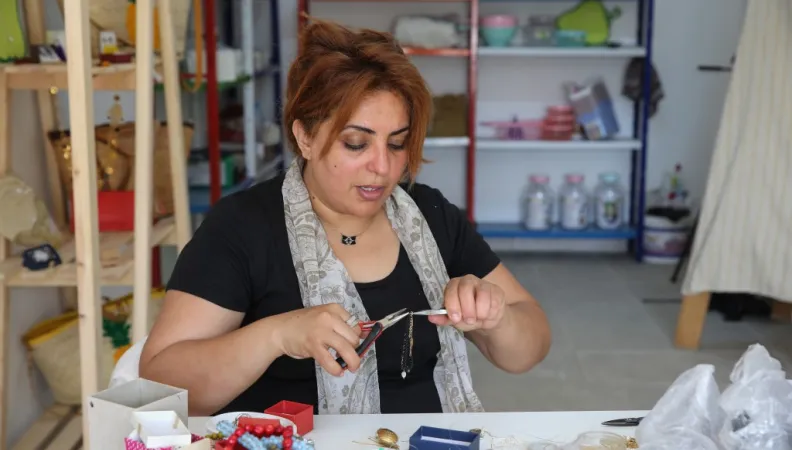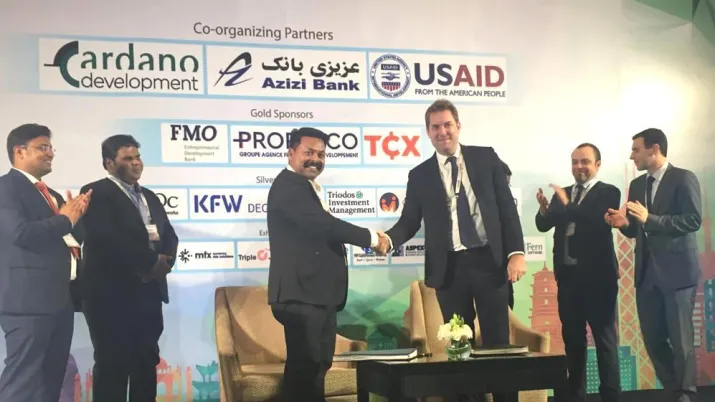Share the page
covid-19 - Microfinance institutions on the front line
Published on

While the coronavirus pandemic is especially weakening economies in developing countries, microfinance players are taking action to support the activities of their most vulnerable clients.
TACKLING COVID-19
The Covid-19 pandemic is also affecting the developing world. Thousands of cases have been reported in Latin America and South Asia, and a number of African countries are reporting infections.
Covid-19: A threat to microfinance
This is a huge challenge for microfinance institutions (MFIs). Indeed, given the nature of their portfolios and the activities of their clients, microfinance institutions and the financial inclusion sector in general are affected by the ongoing crisis. The portfolios of MFIs often have a significant share of the informal sector, a predominance of trade/commerce activities and vulnerable clients who have few resources to “cushion” the impacts of the crisis. These populations generally save little and invest all their resources in their economic activity. Many of these urban microentrepreneurs rely on this daily source of income for their basic needs. The various forms of lockdown can therefore actually mean that they cannot afford to pay for food, housing, healthcare, etc. In some countries, State aid is also not distributed due to the lockdown measures when this aid cannot be distributed via the use of electronic money.
Now, more than ever, it is essential to support and assist players in the financial inclusion sector. This is the entire purpose of the action of PROPARCO, which has been working for many years to support the development of strong and responsible MFIs.
Urgent need to safeguard the solvency of millions of borrowers
These institutions provide savings and credit services to 140 million people on low incomes around the world. “As of 2018, the value of their credit portfolios was $124 billion", points out the FinDev portal. “Their customers are 80 percent women, and 65 percent live in rural areas. They are among the poorest and most vulnerable segments of many societies”. Microfinance allows these people excluded from the traditional banking sector to access financial services tailored to their needs (microcredit, microinsurance, microsavings, means of payment…). Microcredits in particular finance the income-generating activity of these microentrepreneurs. Yet the response to the health crisis has meant that many of these microentrepreneurs have had to temporarily close their businesses or reduce their activity and the supply chain has been affected for others. Some MFIs have had to close their branches, change the way they work and reduce their contact with clients. MFIs, like their clients, are therefore directly affected by the crisis. MFIs rapidly took action to avoid a liquidity crisis, however, they will also need support from donors to address the increase in demand when the activity resumes, which is already the case in certain countries.*
This resilience and the commitment to supporting their clients can be seen with the case of Enda Tamweel, a pioneer in microfinance in Tunisia and the Arab world, which PROPARCO has been supporting for a long time. For almost 30 years, this entity has been demonstrating that microcredit, when it is implemented by responsible and effective institutions, can be a driver of poverty reduction and economic development. In response to the Covid-19 pandemic, Enda Tamweel has decided to assist its clients and ensure their income-generating activity is stable by setting up specific support mechanisms. Right from the onset of the pandemic and in line with regulatory requirements, Enda Tamweel decided to defer the repayment of loan maturities by between 3 and 6 months, “following a formal request from the client and after an analysis on a case-by-case basis”. It has also decided to offer “credit refinancing” for its clients operating in sectors affected by the Covid-19 crisis.
Ensuring the continuity of services
Elsewhere, other MFIs are also taking action. This is the case with the international microfinance network Advans, which operates in 9 countries in Africa and Asia. It is supported by FISEA and plays a major role in supporting entrepreneurs and private sector development. In Côte d’Ivoire, Advans has set up an awareness-raising campaign on the basic protective measures for its employees and clients. The group is also promoting digital transfer systems which limit contacts, such as Mobibank in Ghana and its Advans Mobile banking application in Nigeria.
In India, Annapurna Finance – with 1.6 million clients – has similarly managed to adapt to the impacts of the crisis to ensure the continuity of services. This MFI is supported by PROPARCO, which recently allocated it a USD 15m credit line. It has widely applied teleworking to allow its officers to continue their essential operations. This is necessary as a number of borrowers “have requested emergency loans to overcome the serious liquidity problems they are facing”, Dibyajyoti Pattanaik, Executive Director of the Indian MFI, explains to the NGO Accion. At the height of the crisis, Annapurna Finance also decided to suspend repayments for certain loans.
All these MFIs are thereby on the front line in the response to the impacts of the pandemic. It is a responsible and necessary reaction. Back in 2009, PROPARCO’s Private Sector & Development magazine already recalled that the overarching virtue of microfinance is that “it has managed to demonstrate that it is not only possible and necessary to implement services tailored to the poorest – it can also be profitable”. The world was plunged into a major financial crisis at the time. Today, faced with the devastating effects of Covid-19, microfinance players are taking action to safeguard the survival and financial empowerment of all these populations excluded from the traditional banking system.
Further reading
Proparco supports the Indian microfinance institution Annapurna with a credit line of USD 15 million
On the occasion of the 2020 edition of AFIForum, which takes place on January 22 and 23 in Bangkok, Proparco signed an agreement with the Indian microfinance institution (MFI) Annapurna, for a USD 15 ...
Published on January 22, 2020

